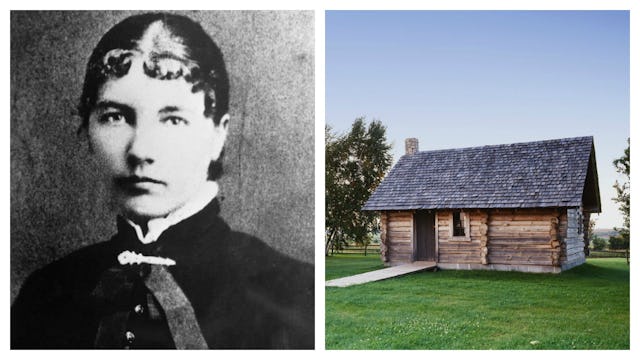Why Laura Ingalls Wilder's Name Was Removed From Children's Literature Award

As a society, to best move forward, we must acknowledge the problematic parts of our past. That’s why, in a unanimous decision, members of the Association of Library Service to Children voted to change the name of the Laura Ingalls Wilder Award. From now on, it will be known as the Children’s Literature Legacy Award. The vote happened during the annual American Library Association conference in New Orleans at the end of June.
“Laura Ingalls Wilder’s books have been and will continue to be deeply meaningful to many readers,” read a statement released jointly from ALA president Jim Neal, and ALSC President Nina Lindsay. “Although Wilder’s work holds a significant place in the history of children’s literature and continues to be read today, ALSC has had to grapple with the inconsistency between Wilder’s legacy and its core values of inclusiveness, integrity and respect, and responsiveness through an award that bears Wilder’s name.”
The award is given to honor books that have a significant impact on children’s literature. It so happens that Wilder was the first recipient of the award in 1954, and it was likely that because she was the first to get the award, she was the one they named it after. Ultimately, the name of the award has no bearing on who gets the award, but things have changed a lot in the United States since 1954.
Of course, some people are outraged by the change. The problem is, they’re not really understanding what it’s about. It is merely the renaming of an award. But a lot of people are assuming that somehow Wilder’s entire legacy is pegged to this one award. It’s not, by the way. The ALA isn’t erasing her from history or banning her books, they are merely saying that her legacy isn’t ultimately aligned with the way they have shaped their rhetoric. Changing the name does not diminish Laura Ingalls Wilder’s work. But it does acknowledge her work’s problematic past.
Since the Little House on the Prairie books were released in the 1930s, they have become synonymous with what life was like for white homesteaders in the latter half of the 1800s. History tells us that westward expansion and the homesteaders in the 1800s were kind of terrible; many of them (and our government) forced indigenous people off the land that had been theirs for centuries. The Little House series depicts the difficulties faced by white settlers, but completely disregards and often belittles the harsh realities faced by indigenous people and black people living in Reconstruction era America.
And while they are still revered and held in high regard, the Little House books are also incredibly problematic. Many of the characters in the books are of the belief that the “only good Indian is a dead Indian.” And while Pa Ingalls may often be the voice of reason and inclusion, he performed in blackface at a minstrel show.
“But that’s what people did/believed back then! She was just writing about the time she lived in!”
This has been a common argument for those who are against the name change. And one more time for the people in the back: Just because something was common or popular at a certain time does not make it okay. Mocking and murdering marginalized people has never been okay. It’s actually far from okay, even though white supremacy and racism made it socially acceptable.
It’s 2018; I shouldn’t have to say something like this, but sadly, I do. Imagine if you were a young child of color handed a copy of one of the Little House books. Let’s be more specific: say you’re a First Nations child, living on a reservation reading the words, “the only good Indian is a dead Indian.” Let those words sink in. The United States Government has already made it abundantly clear that First Nations and indigenous people aren’t a group being thought about unless we’re trying to desecrate their land. The child who reads those words is going to internalize those words.
At this point, it is worth noting that the recipient of this year’s Children’s Literature Legacy Award is Jacqueline Woodson, a black woman. She is an incredibly influential author in the children’s literature world, an an idol to many black authors. Children’s literature is still, by and large, white. There are some notable authors of color of course, but not nearly enough.
Could you imagine being a woman of color and being honored with such a prestigious award named after someone who had a history of casting your people as less than in their work? It would feel very off. As children’s literature inches towards inclusion, it is important to reshape the narrative of what is acceptable. Not everything that white America celebrates as a tenet of history is actually worth celebrating.
Again, no one is trying to ban Laura Ingalls Wilder or the Little House on the Prairie books. They can still be important and hold cultural significance while not being held up as something worth celebrating forever. This isn’t “PC bullshit” — it’s about including all Americans in the narrative of American culture going forward. Inclusion means that sometimes we have to level the playing field. When you know better, you do better.